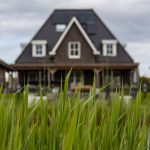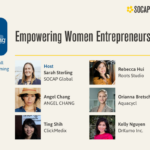By: Jennifer Gurecki, Zawadisha

Variations of the phrase “I’d rather die poor than lose all of my belongings” is a common phrase articulated by women in Kenya. Consumed by fear of losing everything they own if they miss one loan payment, some of the most vulnerable women have been excluded from the microlending sector despite the fact that microfinance was originally envisioned as a tool to help the most vulnerable. Intimidated by borrowing from traditional microlending institutions, but eager to financially contribute to their families, the women we work with have been eagerly awaiting a lending model that place the quality of life for individuals and communities over the size of portfolios and repayment rates. Zawadisha was created to fill this gap and to offer an alternative lending opportunity for women, one with flexible repayment rates, transparent terms, and training. Women choose to borrow from Zawadisha because we prioritize the development of local leadership to leverage social capital in lieu of collateral. Zawadisha was founded in partnership with Kenyan women, and our model continues to rest on the foundation of collaboration. We are not a bank, nor do we operate like traditional financial institutions. We place women first by equalizing our bottom lineäóîthe well-being of our members is just as important as our portfolio. By expanding access to capital and training, we create a safe space for women to cultivate their businesses, test out ideas, and develop their leadership skills with their new-found independence. Rather than penalizing poor women for taking risks to create new businesses, we engage them as decision-makers and leaders in the organization, determining their own unique policies and guidelines. We are building and maintaining a flat organization where decisions are made through consensus and everyoneäó»s voice is heard. We believe this non-hierarchical organizational style allows us to remain agile and flexible, giving us the ability to iterate our program designs to fit the most pressing needs of our members, which is currently centered around water, energy, and food security. Our members determine policies that best work for their particular group and lending plans are co-created and individualized to meet the needs of diverse communities, understanding that what may work in urban cities like Nairobi might not work in rural towns like Kilgoris. Our model is building a stronger world, one in which women are self-sufficient, successful, and stand on their own two feet. We believe that this allows us to avoid a potentially harmful “one-size-fits-all”approach that characterizes similar work in the field of womenäó»s economic empowerment.




